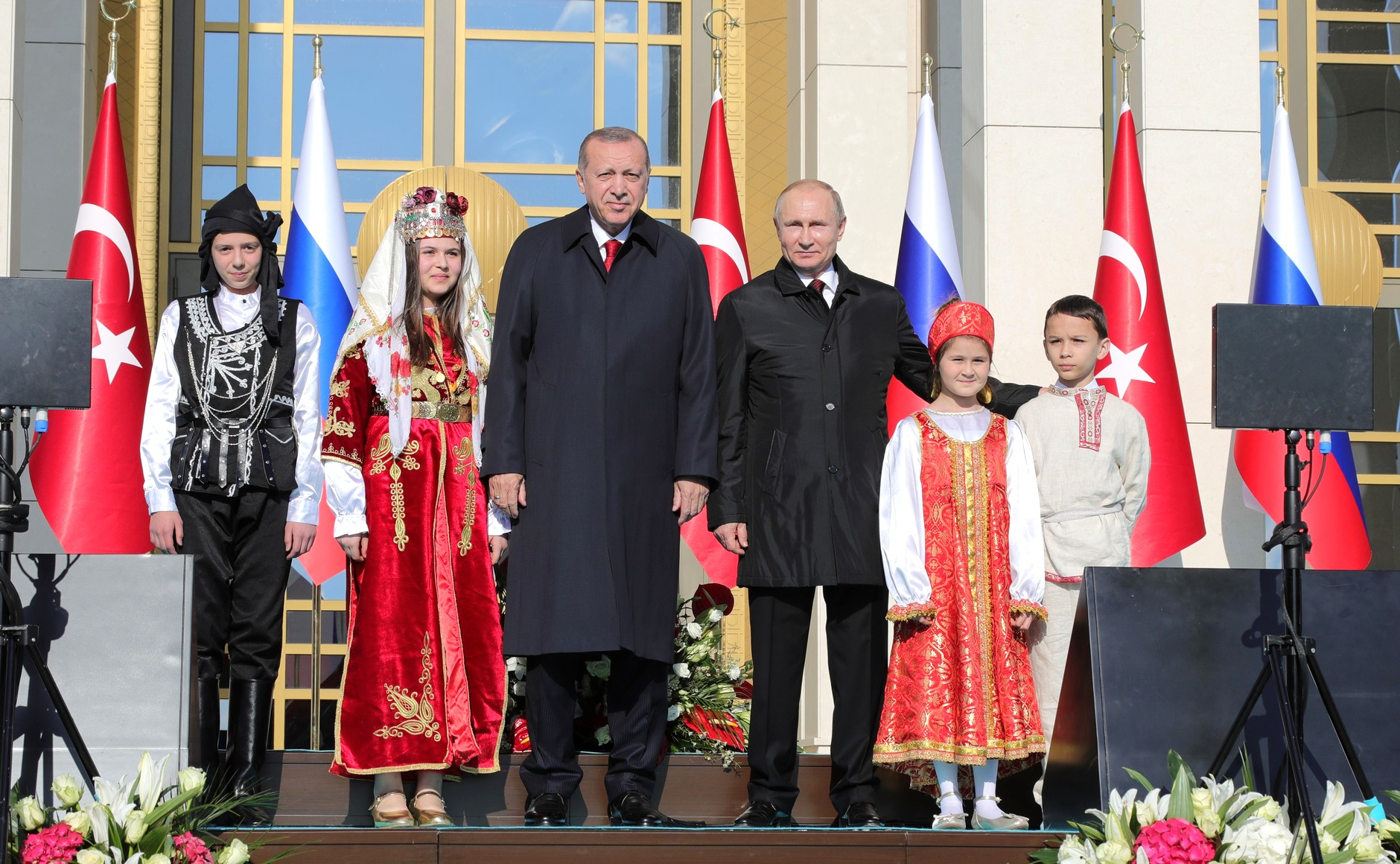 Image courtesy of Wikimedia Commons.
Image courtesy of Wikimedia Commons.
What Would U.S. Sanctions on Rosatom Mean for U.S.- Türkiye Relations?
Congress is currently considering H.R. 8046, the Rosatom Sanctions Enforcement Act. If passed, the bill would provide a grace period of 180 days before the implementation of sanctions against Russian nuclear energy giant Rosatom and secondary sanctions against foreign individuals working with the company. The bill, meant to dissuade states from “critical dependency on the Russian energy sector,” is too little, too late for Türkiye, whose Akkuyu nuclear power plant is to be operated by Rosatom upon completion. With limited means of renegotiating that deal, Türkiye is bound to feel the effects of the sanctions outlined in the Rosatom Sanctions Enforcement Act, unless it is granted a waiver. If sanctions against Rosatom come into effect, the United States should consider leveraging the offer of a sanctions waiver as a means of enticing Türkiye to get rid of its contentious Russian S-400 air defense system.
Rosatom has largely escaped sanctions thus far due to global overreliance on the Russian nuclear energy industry. As of 2020, Russia controlled 40% of the world’s uranium enrichment infrastructure, making it a major player in the global market. However, since the beginning of the war in Ukraine, Rosatom has played a part in enabling Russia’s war machine, as the supposedly civilian company has offered to provide military components to sanctioned Russian weapons manufacturers and military units, according to Ukrainian intelligence. Rosatom also aided the Russian military with the takeover of Ukraine’s Zaporizhzhia nuclear plant in 2022.
Consequently, the United States and its allies have taken significant steps to move away from Rosatom and Russian nuclear energy. In May of 2022, Finland terminated a Rosatom contract to build the now scrapped Hanhikivi 1 plant because of the war in Ukraine, and in May of this year, President Biden banned Russian enriched uranium imports, which had previously constituted about 24% of the supply used by U.S. nuclear power plants.
Not every country has taken similar measures though. NATO allies Hungary and Türkiye are both still collaborating with Rosatom in the construction of domestic nuclear power plants, though they are certainly not the only countries doing so. Türkiye, however, is in a unique situation: its Akkuyu power plant, which is set to be fully operational by the end of 2028, was constructed by Rosatom under a build-own-operate model. Under the current contract, Rosatom is to operate the plant for the first 60 years of its lifespan, with the possibility of a 20 year extension. Thus, unlike Hungary, which could have begun weaning itself off of Rosatom after the invasion of Ukraine, Türkiye is stuck with the company unless it is willing to altogether scrap the Akkuyu power plant, which will provide about 10% of Türkiye’s electricity once completed. Discounting that unlikely scenario, should H.R. 8046 pass, Türkiye will feel the effects of the Rosatom Sanctions Enforcement Act unless it is granted a waiver.
In examining options to use this moment to strategic advantage, the United States should consider granting Türkiye this waiver in exchange for Türkiye selling or donating its Russian S-400 missile defense system to Ukraine, a removal option already suggested in 2022. Doing so could benefit Türkiye immensely while satisfying American demands and strengthening Ukraine’s defense. It would not only be able to continue as planned with its Rosatom-built nuclear power plant, but would also allow for the lifting of the CAASTA sanctions, implemented by the United States after the S-400 system purchase. The opportunity would also allow Türkiye to reassert itself as a valued NATO ally and would potentially make it eligible for the F-35 program. However, Türkiye’s recent F-16 deal with the United States may reduce the negotiatory value of that fact. The United States would get peace of mind in finally seeing the S-400 system out of NATO territory while simultaneously securing more aid for Ukraine. Moreover, getting rid of the S-400s, which Türkiye has kept in storage to avoid incurring further sanctions, would be a large step toward improving broader relations between the United States and Türkiye.
Admittedly, the deal would require careful execution by Türkiye. The two major political concerns for Erdogan would be upsetting Putin and domestic anger over the removal of a weapons system that has become a symbol of Turkish power. However, Türkiye has already sold military drones to Ukraine and is in the process of co-producing them with Ukraine, and the public could likely be appeased with the much needed economic benefits that would come from the lifting of CAASTA sanctions.
If the Rosatom Sanctions Enforcement Act passes, the United States must seriously consider the benefits and drawbacks of granting Türkiye a sanctions waiver. A deal of this nature would allow Türkiye to continue its pursuit of nuclear energy while also helping Ukraine and improving U.S.-Türkiye relations, making a sanctions waiver for Türkiye a lot more appealing for the Biden administration.





